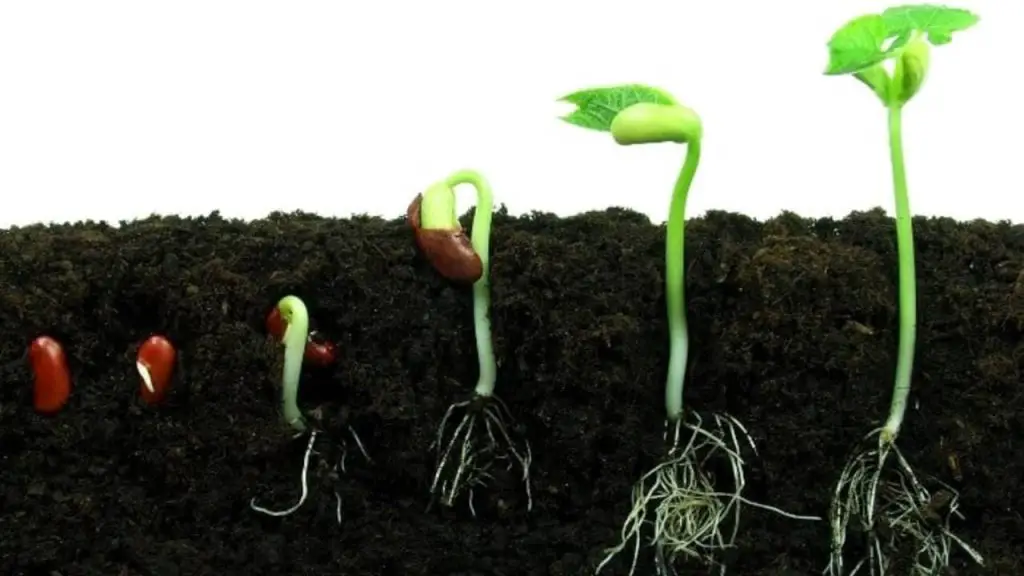Have you ever planted seeds and wondered why they haven’t sprouted yet? It’s natural to feel impatient when waiting for your plants to grow, but did you know that the time it takes for seeds to germinate can vary greatly depending on a number of factors?
Germination is the process of a seed sprouting into a new plant. It’s an essential part of the plant life cycle, but it’s not always a quick or easy process. Many factors can affect how long it takes for seeds to germinate, including the type of plant, the quality of the seed, and the environmental conditions.
If you’re a gardener or just curious about the science of plant growth, understanding the germination process is key. In this article, we’ll explore the factors that influence seed germination and answer the essential question: how long does it take for seeds to germinate?
What is Seed Germination?
Seed germination is the process by which a seed begins to sprout and grow into a new plant. It is a crucial step in the life cycle of any plant, and it involves a complex series of biochemical reactions within the seed itself.
The process typically begins when the seed is exposed to water, which triggers the activation of enzymes that break down stored nutrients within the seed. These nutrients provide the energy and raw materials needed for the seedling to grow and develop.
As the seedling grows, it will eventually emerge from the soil and begin to photosynthesize, producing its own food through the absorption of sunlight.
Overall, seed germination is a fascinating and essential process that allows plants to reproduce and thrive in a wide range of environments.
How do Seeds Germinate?

Water
The first step in seed germination is the absorption of water. When a seed is exposed to moisture, it starts to absorb water through its outer layer, which triggers the germination process.
Temperature
Temperature plays a crucial role in seed germination. Seeds require a specific temperature range to germinate, and this varies depending on the plant species.
Most seeds require a warm, moist environment to germinate, while others require a cold period before they can sprout.
Oxygen
Seeds also require oxygen to germinate. This is because oxygen is required for the metabolic processes that occur during germination.
If a seed is buried too deep, it may not receive enough oxygen to germinate, which can result in poor germination rates.
Hormones
Plant hormones, such as gibberellins, are also important in seed germination. These hormones help to break down the seed coat and stimulate the growth of the embryo.
This is why some seeds require scarification, or the breaking of the seed coat before they can germinate.
Light
While not all seeds require light to germinate, some do. Light can be used as a cue to trigger the germination process, or it can be required for the growth of the seedling after germination.
Nutrients
Seeds contain all the nutrients required for the embryo to grow, but once the seedling emerges from the soil, it requires external sources of nutrients.
These nutrients can be found in the soil, or they can be provided through fertilization.
Time
Finally, seeds require time to germinate. While some seeds may sprout within a few days, others may take weeks or even months to germinate.
Patience is key when it comes to seed germination, and it is important to provide the seeds with the optimal conditions for germination to occur.
7 Factors that affect seed germination time
1. Temperature
Temperature plays a significant role in seed germination. Different seeds have different optimal temperatures for germination.
Some seeds prefer cooler temperatures, while others require warmer temperatures. Generally, a temperature range of 65-75°F is ideal for most seeds to germinate.
2. Moisture
Seeds require moisture to germinate. If the soil is too dry, the seeds will not germinate. However, if the soil is too wet, the seeds may rot. The ideal moisture level for seed germination is around 50-70%.
3. Light
Light is not always essential for seed germination, but some seeds require light to germinate. Seeds that require light to germinate should be placed on the soil surface and not covered with soil.
4. Soil type
The type of soil used can affect seed germination. Seeds require loose, well-draining soil for proper germination. Heavy soils or soils with high clay content can cause poor drainage, leading to seed rot.
5. Seed quality
The quality of the seed can also affect germination time. Old seeds or seeds that have not been stored properly may have a lower germination rate and take longer to germinate.
6. Seed coat hardness
Some seeds have a hard outer coat that needs to be broken down before germination can occur. This process can be helped by soaking the seeds in water or scarifying the seed coat before planting.
7. Chemical inhibitors
Some seeds contain chemical inhibitors that prevent germination until certain conditions are met. These inhibitors can be removed by soaking the seeds in water or by exposing them to certain temperatures or light conditions.
How long does it take for seeds to germinate?
Germination time varies by plant species
The time it takes for seeds to germinate can vary significantly depending on the plant species. Some plants may germinate within a few days, while others may take several weeks or even months.
Environmental factors play a role
Environmental factors such as temperature, humidity, and soil conditions can also impact the germination time of seeds.
Seeds require specific conditions to germinate, and if these conditions are not met, the germination process may be delayed.
Some seeds require pre-treatment
Certain seeds may require pre-treatment before they will germinate. This may include soaking the seeds in water, scarification (scratching the seed coat), or stratification (exposing the seeds to cold temperatures).
Seed freshness matters
The freshness of the seeds can also impact the germination time. Fresh seeds are more likely to germinate quickly and successfully than old or stale seeds.
Germination times can be influenced by seed quality
The quality of the seeds can also impact the germination time. High-quality seeds that are properly stored and cared for are more likely to germinate quickly and successfully than low-quality seeds.
Factors affecting germination time can be controlled
While some factors that impact germination time may be out of your control, there are steps you can take to create ideal conditions for germination.
This may include providing the right amount of moisture, temperature, and light for the seeds.
Patience is key
In general, it is important to be patient when waiting for seeds to germinate. While some may sprout quickly, others may take longer.
It is important to give the seeds time and to provide the right conditions for germination to occur.
Conclusion
In conclusion, the time it takes for seeds to germinate depends on various factors such as the type of seed, environmental conditions, and the quality of the seed itself.
Some seeds may take a few days to sprout while others may take weeks or even months. It is important to follow the specific instructions for each type of seed and provide the ideal conditions for germination.
With patience and proper care, seeds will eventually germinate and grow into healthy plants.



